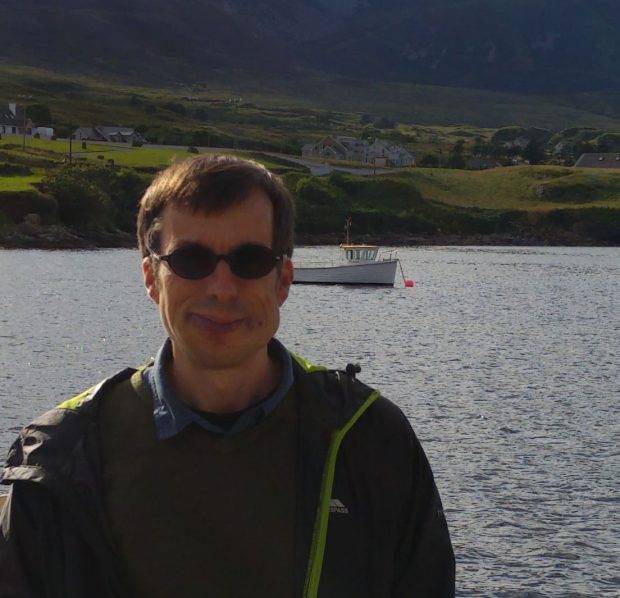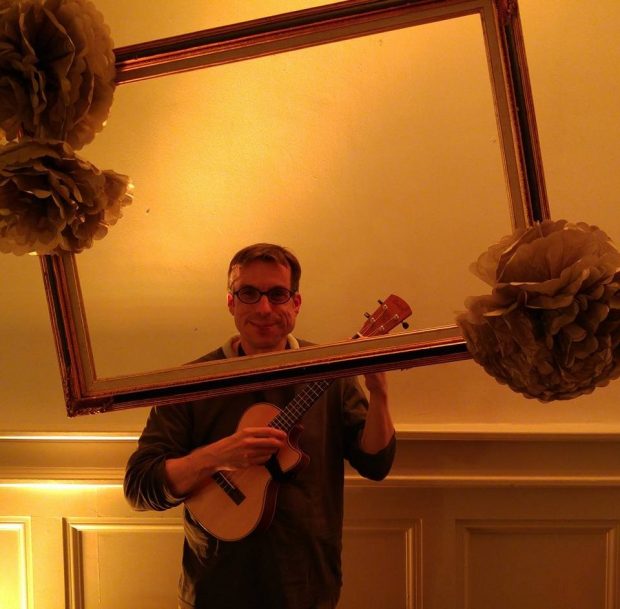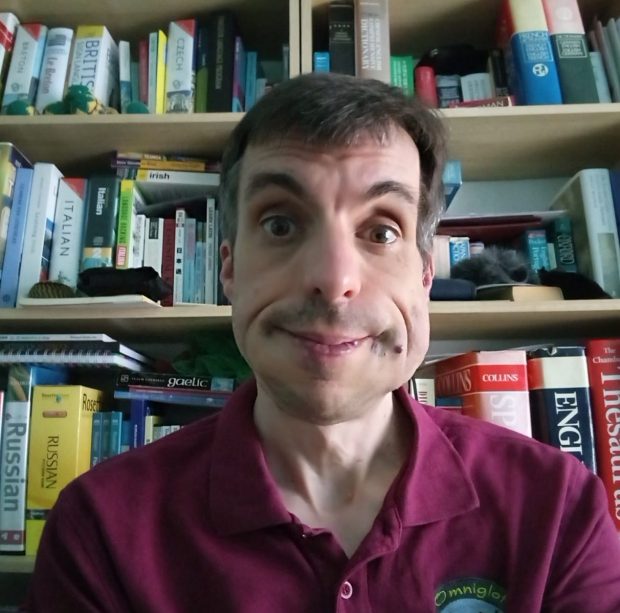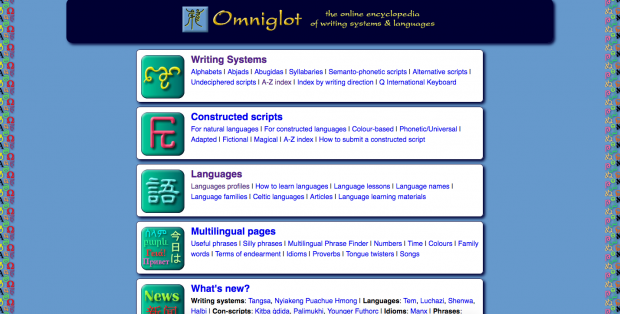First of all, I would like to ask You about Welsh language which You speak fluently. What’s the situation concerning its present and future? Is it dying? If yes, why? What are the UK's language politics in general and concerning Welsh in particular? What is/can be done?
According to the 2011 census, 799,481 people in Wales (26.1% of population) have some ability in Welsh, and 562,016 of them can speak the language - others can understand and/or read it, or have other combinations of skills. There are an estimated 110,000 Welsh speakers elsewhere in the UK, about 5,000 speakers in Patagonia in Argentina, about 6,000 in North America and 1,688 in Australia. At the time of writing, there were 487,000 learners of Welsh on Duolingo. The Welsh Assembly plans to have 1 million speakers of Welsh by 2050.
Welsh has official status in Wales. Legal, health and public services are available in Welsh, as is education at all levels. Some private companies provide signage and services in Welsh, Welsh is taught in all schools, and Welsh-medium schools, where all lessons are in Welsh, are increasingly popular. Welsh is used in radio, TV and other media, and also in literature.
The UK government has ratified the European Charter for Regional or Minority Languages in respect of Welsh.
So, is it a dying language? In some areas, perhaps, but in others it is still widely spoken, and in some places the numbers of Welsh speakers are growing.

As far as I know, You are also fluent in many other languages. Which were the toughest to learn and why?
The languages I’ve found most challenging to learn are Mandarin, Japanese, Taiwanese, Cantonese, Russian and Czech. Mandarin is difficult because of its complex script, its pronunciation, and very different vocabulary to any other language I know. The Japanese scripts is also difficult to learn, and the structure of Japanese is quite different to other languages I know.
Taiwanese and Cantonese are difficult because they are primarily spoken languages with no standard written forms. There are fewer materials available for learning them compared with Mandarin or other major languages, and their pronunciation is quite challenging.
Czech and Russian are difficult because of them highly inflected grammar and sometimes tricky pronunciation. The Cyrillic alphabet adds an extra hurdle when learning Russian.
Could You overview the general situation of minority languages of Europe and the world? There are many of them, and some seem to be in critical situations (say, Saami languages in Russia), others, like Karaim in Lithuania, have stable conditions, although they have a few speakers left.
Minority languages are those spoken by a relatively small number of people in one particular region. Some may have official recognition and support, others do not. In some cases governments and other organisations might actively discourage their use, or even punish people for speaking them.
In Europe every country has a number of minority languages, some of which are ingenious to the regions where they are spoken, others are newer arrivals from other countries. In the UK, for example, indigenous minority languages include Welsh, Scottish Gaelic, Cornish, Irish, Scots and British Sign Language (BSL). The Celtic languages have been spoken for thousands of years, but BSL developed during the 19th century.
Speakers of minority languages generally speak the majority language of the country where they live. In the UK, for example, speakers of the minority languages all speak English as well, although some children don’t learn English until they go to school. The same is generally true in other countries.
In some cases there are concentrations of minority language speakers in a particular region or town - in some towns near where I live up to 70 or 80% of people speak Welsh. In such communities it is more likely that the minority language will be passed on from generation to generation. It is possible to build new minority language speaking communities, as has been done in Belfast with Irish.
In other cases minority languages speakers are scattered in a sea of a majority language, and for them it is much more difficult to keep the language alive. The grandparents may speak the language fluently, the parents may speak it less well, and the children may understand it, but not speak it. When only a few elderly speakers are left, as is the case with many indigenous languages in North America, Australia and elsewhere, it’s unlikely the language will survive much longer.
Minority languages may be spoken in remote rural communities where there are few opportunities for young people, who are likely to move elsewhere for study and work. They may continue to speak their minority language, but this is difficult if none of the people around do so.
More details of way languages die, and how some have been revived: https://www.omniglot.com/language/articles/languagerevival.php.

Let’s move to Your personal story. Who are You more: an academic, or a practic?
Technically I am the director of my own company (Omniglot Ltd), but as I have no army of minions or other employees, I’m effectively self-employed. I describe myself as a linguist - I have studied languages and speak some of them quite well, and have also studied linguistics, and am interested in language in a scientific sort of way.
I've always been interested in languages. My mother’s family were originally from Wales, although she grew up in England and doesn’t speak Welsh. This is one reason why I got interested in Welsh. I grew up in the northwest of England speaking only English until the age of 11, when I started learning French at school. The following year I started learning German, and I studied both languages until the age of 18, when I finished secondary school. I found languages interesting, was quite good at them, and thought I wanted to work abroad.
After school I spent a year working in hotels, guest houses and farms in England, France and Jersey in the Channel Islands. My French became fairly fluent while I was in France, and I picked up a little Portuguese from my colleagues in Jersey, most of whom were from Maderia. I tried to learn other languages - Welsh, Italian, Icelandic and Japanese, but without much success.
I studied Chinese and Japanese at universities in England, Taiwan and Japan, then worked for the British Countil in Taiwan for four years. During which time I became fluent in Mandarin, and learnt bits of Taiwanese, Cantonese, Korean, Spanish and Scottish Gaelic.
After returning to the UK in 1998, I spent a year trying to set up a web design and translation business, while looking for other jobs as well. The website I set up for this business became Omniglot.com. I also learnt some Welsh, Cantonese and Esperanto. Eventually I got as a web designer building websites in multiple languages.
While working as a web designer I studied a few languages, including Welsh, Irish, Scottish Gaelic, Italian, Portuguese, Russian and Czech. I also continued to work on Omniglot, and after a few years I was making a bit of money from adverts and affiliate programs. Nine years later I was able to make a living from it, which was fortunate as I was made redundant from my job.
I decided it was time to try something different, and after considering serveral possibilities, such as training as a teacher, studying music, and become a circus performer or trainer, I decided to do an MA in Linguistics, and chose Bangor Univeristy in Wales as the course sounded interesting, the cost of living there is cheaper than where I was living before, and I wanted to be in Welsh-speaking environment. I’ve been there ever since, making a living from running Omniglot.
I spend my time maintaining, improving and adding new material to Omniglot. Answering questions from visitors, writing blog posts, and making podcasts and videos. When not working on Omniglot, I learn languages, read, sing, play instruments, and write tunes and songs.
About me in a variety of languages: https://www.omniglot.com/aboutme.htm.

Are You still learning languages? If so, which ones?
I’m currently learning Dutch, Danish, Swedish and Spanish. I’ve been learning Swedish for the past three years, Danish for two, Dutch and Spanish for about a year. Danish was new to me, but I had studied a bit of Dutch and Swedish, and lots of Spanish. I use apps like Duolingo, Memrise and Mondly. Sometimes I use other courses such as Teach Yourself and Colloquial, and listen to podcasts, watch videos, films and TV programmes.
What makes language learning hard / easy? Again, what were Your motivations to learn certain languages (bearing in mind that they were many and quite different)?
Every language has some aspects that are easy and some that are hard. Generally the more different a language is from your native language, and other languages you know, the more difficult it is to learn. For me the easiest languages I’ve learnt are Dutch, Swedish, Spanish and Italian - they all have a lot of words in common with English, and their pronunciation and grammar are not too difficult. The hardest languages are Chinese, Japanese, Russian and Czech, which I discussed above.
At school I had to learn French for three years, then chose to continue studying it for another four years because I found it interesting and was quite good at it. German was the only other language available at my school at the time, and I thought it would be interesting to learn.
I chose to study Chinese and Japanese at university because I thought they would be interesting and challenging. I didn’t have a particular interest in Chinese or Japanese culture at the time.
Whenever I visit another country or plan to do so, I try to learn at least a little of the local language. In some cases, I may learn more of it afterwards if it appeals to me. In other cases I might get interested in languages through songs and music - Irish, Scottish Gaelic and Spanish, for example.
More details of my language learning adventures: https://www.omniglot.com/language/learning/index.htm.
Why did You decide to start Omniglot back in 1998? What is its mission? Is it successful? What are Your plans which You could talk about?
As I mentioned above, my original plan when started Omniglot was to set up a web design and translation business. That didn’t work very well, and soon became a website about writing systems and languages. As the website grew and the number of visitors increased, I started to receive some income from adverts and affiliate programs, and after about 10 years, I was able to make a living from it.
I suppose my mission on Omniglot is to provide introductions to as many languages as possible. At the time of writing (2021 03 08, – M.P), there are details of 1,479 languages on Omniglot, plus phrases in 323 languages, numbers in 625 languages, advice on learning languages, numerous articles and blog posts, and a fair few podcasts and videos.
Even though I've received offers from companies wanting to buy Omniglot, I have no intention of selling it any time soon. I plan to continue working on it as I currently do, and will probably come up with new things to add to it.
More details: https://www.omniglot.com/about2.htm.

This could be an annoying question, but I will try to ask it otherwise: what a person who started to study a language should do when he/she reaches a point when some understanding is unfolding? How not to stop learning, how to motivate oneself, if, say, there’s no possibility to live in the country in which the language is spoken? Especially the cases when textbooks are but few.
If you are able to understand and/or read a language to some extent, you can get beyond the textbooks, courses and apps, and start enjoying material made for native speakers - TV shows, films, videos, podcasts, books, magazines, websites, etc. Whatever your interests, you can probably find something about them in the language you’re learning. If you are into food, for example, you could watch cookery programmes, and/or learn to cook dishes from countries you’re interested in.
When reading in a foreign language, it can be difficult at first if you have to keep looking up words. One way round this is to use bilingual texts, or find texts that are available in your language and the one you’re learning, such as the Harry Potter books.
You can try to integrate the language into your everyday life. I listen to the radio in Welsh when I’m cooking, for example, and listen to audio books when I go for walks.
Some language learning tips: https://www.omniglot.com/language/index.htm.
Thank You.